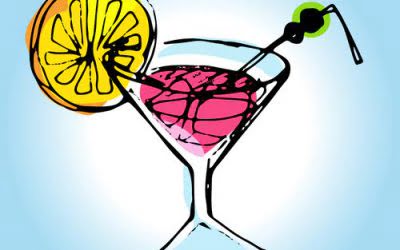Generalized tonic–clonic seizures are the most characteristic and severe type of seizure that occur in this setting. In these models, the withdrawal seizures are triggered by neuronal networks in the brainstem, including the inferior colliculus; similar brainstem mechanisms may contribute to alcohol withdrawal seizures in humans. Alcohol Sober House dependence results from compensatory changes during prolonged alcohol exposure, including internalization of GABAA receptors, which allows adaptation to these effects. Optimizing approaches to the prevention of alcohol withdrawal seizures requires an understanding of the distinct neurobiologic mechanisms that underlie these seizures.
Binge Drinking Seizures

In fact, research shows that a drink or two does not increase seizure activity. Electroencephalogram (EEG) tests show brain activity remains the same, as long as the amount of alcohol ingested is small. This article discusses alcohol withdrawal, its symptoms, and potential complications. It also provides an overview of the alcohol withdrawal timeline process and when to discuss your drinking with your healthcare provider. Alcohol withdrawal syndrome (AWS can cause a range of symptoms, from mild anxiety and fatigue to severe hallucinations and seizures. In extreme cases, it can be life threatening. In multivariate analysis, alcohol consumption within the last 12 months was independently related to AED monotherapy.
Enhancing Healthcare Team Outcomes
In addition, clinicians must learn to differentiate DT’s from other possible causes of delirium (Alvi and Gonzalez 1995). But delirium tremens is a medical emergency and requires a hospital stay. You may need to be sedated for more than a week until the alcohol withdrawal symptoms go away. And a doctor may use brain-imaging techniques to monitor treatment over time.
Symptoms and Causes
- Out of 310 interviewed subjects, 204 (65.8%) had used alcohol within the last 12 months, 158 (51%) within the last 30 days, and 108 (34.8%) within the last 7 days.
- It has been demonstrated that assessing alcohol consumption is biased by recall even when the recall period is only 1 week (25).
- DT’s are a serious manifestation of alcohol dependence that develops 1 to 4 days after the onset of acute alcohol withdrawal in persons who have been drinking excessively for years.
- Alcohol acts on the brain through several mechanisms that influence seizure threshold.
If someone has a seizure from alcohol withdrawal symptoms, you should move things out of the way that they could accidentally hurt themselves with during the seizure. You should also call 911 and get emergency medical help as soon as possible, even if the seizure has stopped. After the seizure, you should position them on their side and ensure that their airway is clear while waiting for emergency assistance. Alcohol acts by stimulating receptors in your brain that cause brain activity to be suppressed. Alcohol itself does not normally cause seizures, but during withdrawal, when the suppressive activity of alcohol is removed, your brain will be more susceptible to seizures than it normally would. There are some specific considerations that may affect your risk of seizures when using alcohol.
A majority of patients are left with an abnormal gaze, persistent ataxia, and a potentially disabling memory disorder known as Korsakoff’s syndrome. Although fewer than 5 percent of patients initially exhibit a depressed level of consciousness, the course in untreated patients may progress through stupor, coma, and death. Nutritional status should be closely monitored during treatment of acute AW https://thewashingtondigest.com/top-5-advantages-of-staying-in-a-sober-living-house/ to prevent Wernicke-Korsakoff syndrome (for more details, see the article by Myrick and Anton, pp. 38–43). Alcoholics who are awaiting surgical or medical treatment often exhibit DT’s when their alcohol consumption is abruptly interrupted by hospitalization. Therefore, hospital staff must remain vigilant for signs and symptoms of alcohol withdrawal, even in patients not known to be alcoholic.
- He and his collaborators then matched 24,477 pairs of patients who had been diagnosed with alcohol use disorder and prescribed gabapentinoids or acamprosate.
- Alcohol withdrawal syndrome is a clinical condition that may arise following the cessation or reduction of regular, heavy alcohol consumption.
- Binge drinking can cause alcohol withdrawal seizures in people, even for individuals who do not have epilepsy.
- It’s important to note that the Clinical Assessment mentioned above may be unreliable because it is subjective in nature.

